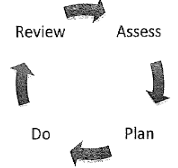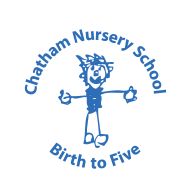Chatham Nursery School Birth to Five
SEND Report to Governors
Executive Headteacher: Ms Andrea Connearn
Head of School: Mrs Julie Marshall
SEND Governor: Ms Mary Jackson
SENCO: Mrs Angela Pagan angela.pagan@liverpool.gov.uk
Mrs Sara Atkinson (3-4 Room & SEN Resource room) sara.atkinson@liverpool.gov.uk
Mrs Rachel Rodick (2yr old Provision) rachel.rodick@liverpool.gov.uk
Local Offer Contribution: See School website www.chathamnursery.com and Local Offer
Chatham Nursery School Birth to Five
139 Earle Road, Liverpool L7 6HD
0151 233 1201
chatham-ao@chathamplace.liverpool.sch.uk
Our Approach as a School
High quality first teaching and additional interventions are defined through our person-centred planning approach which takes place across the school contributing to our provision management arrangements. These processes help us to regularly review and record what we offer to all children in our care and what we offer in addition to this. These discussions also serve to embed our high expectations amongst staff, about quality first teaching and the application of a differentiated and personalised approach to teaching and learning. It is our whole-school approach to discuss aspirations and achievements with ALL of our learners. This report highlights how we ensure that this is practice is embedded within our classrooms, our pastoral care system and our support arrangements.
Underpinning ALL our provision in School is the graduated approach cycle of:

All staff are responsible for every child in their care, including those with special educational needs (SEND Policy)
Assess
All children`s needs are analysed using the class teacher and key person assessment and experience of working with the child as well as the views and experience of parents. Advice from external support services will also be
considered. Any parental concerns will be noted and compared with the schools information and assessment data on how the child is progressing. This Analysis is regularly reviewed to ensure that support and intervention is matched to need.
Plan
Planning involves consultation between the class teacher, key person, SENCO and parents to agree the adjustments, interventions and support that are required and a clear date for review. A play plan may be developed outlining specific targets to be achieved.
DO
Targets set remain the responsibility of the class teacher even where interventions may involve group or one to one work with class staff or the child’s Key Person.
Review
Reviews of a child`s progress are made regularly. The review process evaluates the impact and quality of the support and interventions. Consultation with parents/carers, staff and all outside agencies ensures that additional provision is based on an agreed outcomes approach. These are discussed with the range of professionals who offer support to the child to ensure that all providers are held accountable.
SEND Needs
SEN Support is based around the following four broad areas of need and support. This provision map shows the provision we make for the four areas of need and support.
1.Communication and Interaction
At Chatham Nursery School Birth to Five all our children are screened on entry using the WELLCOMM language screening toolkit. This helps to identify any children who may need additional support with their communication and language skills or who could potentially need referrals to Speech and Language Therapy. This screening is repeated on a termly basis to monitor the progress of individual children and ensure any interventions targets the correct areas.
During the academic year 2024-25 we have commissioned additional Speech and Language support from MAST (Merseyside Autism Speech Therapy) through School Consortia funding. MAST are supporting staff with accurately assessing individual children’s specific communication and language needs and working alongside staff in class to implement and model appropriate support. The additional support and training received from MAST is allowing us to successfully implement a range of Communication and Interaction interventions during the 2024-25 academic year, including Bucket Therapy, Intensive Interaction.
We work closely with Community Speech and Language therapists to ensure individual under this service have the opportunity to work towards their targets whilst in school.
2. Cognition and Learning
Children’s development is closely tracked across the EYFS and children are continually assessed against age-related expectations. When staff identify cognition and learning needs, further advice and assessment is sought from external agencies such as SENISS, the Educational Psychologist and Developmental Paediatrics.
Staff plan bespoke activities for children with cognition and learning difficulties based on the advice of external agencies and using the child’s interests and current levels of development as a starting point. Additional resources are supplied where needed to support the engagement of children with cognition and learning difficulties. Children who are presenting with severe learning difficulties have a bespoke timetable and curriculum with an enhanced level of additional adult support to ensure they get the most out of their time in school.
During the 2024-25 academic year, we have commissioned further support through OSSME, who supported us with tailoring our provision for specific children with suspected severe learning difficulties.
3. Social, emotional and mental health
As part of our ongoing observation, assessment and planning cycle, staff monitor children’s well-being and involvement and record this within observations of children. If staff identify any concerns around the wellbeing of a particular child these are shared immediately with the SENCO and / or Safeguarding Team and will be monitored closely.
We adopt a positive behaviour policy, designed to support the emotional development, mental health and well-being of all children. A whole-school approach to exploring emotions is adopted using the Colour Monster book as a starting point. Children are encouraged to talk about their feelings on a daily basis through regular emotional check-ins and interactive displays.
As a setting, we recognise that behaviour is a form of communication and seek to find the function and purpose of all behaviours. Where a child is identified as having social, emotional and mental health needs, and is therefore presenting with disruptive or harmful behaviour, individual behaviour plans are written, focussing predominantly on proactive strategies that should be put in place to support the child in their emotional regulation and development
4. Sensory and/or physical needs
Chatham Nursery School Birth to Five is single storey and is wheelchair accessible. We have nappy changing facilities and our toilet areas are wheelchair accessible. We are committed to improve accessibility for children with disabilities through our Accessibility.
Staff are supported to work with individuals with physical or sensory needs on a case-by-case basis. Advice from the Sensory Team is sought where a child has a visual or hearing impairment.
We have an increasing number of children who present with sensory processing difficulties. We have developed sensory circuits. These have been designed with advice from Children’s Occupational Therapy and OSSME and include equipment to provide safe, age-appropriate proprioceptive, vestibular, tactile and visual input, as well as providing a less stimulating space than the busy classroom environment.
As of May 2024, we have 23 children receiving some form of SEN Support in the Nursery School, 7 of these children have Education, Health and Care Plans and we are gathering evidence for four more plans
We have internal processes for monitoring quality of provision and assessment of need. This is overseen by the Leadership Team through monitoring of class planning and individual support plans, informal learning walks and formal observations.
Resourced Provision at Chatham Nursery School:
Since December 2023 we have officially become a 12-part time (15 hours per week) authority resourced places for Early Years children who are presenting with complex needs. Placement for these places is arranged through the Local Authority SEN Team.
The resourced placed children at Chatham Nursery School have a bespoke room with a ratio of 3 adults to six children ratio. The children receive a bespoke curriculum tailored to their individual needs. The SENCO supports staff to implement this highly bespoke provision with support from external agencies and other professionals involved with each child. The quality of provision is overseen by the Local Authority.
During the 2024-25 academic year, we have 12 children accessing these places, with two of them accessing a double place as they attend for 30 hours per week.
Co-Producing with Children, young people and their parents
Involving parents and learners in the dialogue is central to our approach and we do this through:
• Gathering information from parents about their child’s interests, strengths, areas for development and
things that are important to them. Completing an `All about Me ` booklet
• Parents are asked to express their views about the school through questionnaires given out at different stages of the year and through completing the Parent view questionnaire.
• Parents are expected to attend Parent meetings at regular intervals throughout the year so that they are well informed of their child’s progress and areas they can support them with. As soon as a concern is raised about a child’s progress, parents/carers are informed and involved in deciding outcomes and how best to support their child. Parents are involved in setting and reviewing the targets set in their child’s individual support plans.
• Some parents/carers have been invited to 1:1 support sessions with their child led by our staff or external agencies working with the child.
Parents are encouraged to contribute to their child’s assessment records and learning journey.
• We encourage parents to accompany their child on any educational visits.
• We are always keen for parents to become Parent Governors.
• Information is shared through our newsletters, and the school website for parents to support their child’s learning.
• Parents / carers are able to speak to staff at any time to discuss any concerns or ask any questions they may have. They can contact class teachers or other key members of staff working with their child by phone, email or face to face when collecting their child.
• Review meetings for children with identified SENDs always take into consideration the individual voice of the child (through the way they present in school) and the views of the parents / carer.
• Where a child has identified SENDs, parents / carers are supported by the SENCO to access training opportunities and support services to help them in understanding and supporting their child’s needs at home.
Staff development and Qualifications
We are committed to developing the ongoing expertise of our staff. We have current expertise in our school:
• In September 2023 the SENCO role in the Nursery School was developed as a four day week non-class based
• SENCO attends School Improvement SEN Briefing in March and November and Consortia meetings Attendance at meetings with feeder schools to discuss new pupils and their needs
• All staff receive regular safeguarding training at the relevant level
• School External Partnerships and Transition Plans
• Our assessment of children and young people with special educational needs is moderated through our school consortia meetings and neighbouring partners
• This year we working with our feeder schools to provide smooth transition arrangements for children moving onto primary school and welcoming children to our 3-4 year provision from the 2-3 provision within the setting
• Staff and SENCO from our feeder schools are invited into nursery for the children to share their Learning Journey File and for staff to discuss individual child`s needs. Extra visits were arranged as required
Complaints
We hope to avoid the need for complaints through excellent communication and partnership working with our families. In this way, we hope that any concerns raised can be resolved informally. Our complaints procedure is outlined in our Complaints Policy, available on our website.
This year we have had No complaints regarding SEND.
What has worked this year?
We are constantly striving to improve our provision for all children. Whilst we recognise that our school is continually developing, here are some things we feel have worked well
• The continual development and refreshment of staff knowledge and confidence of adopting different SENDs strategies.
• Successfully managing the resourced provision for our children with complex needs, ensuring they get the support that they need.
• 7×7 EHCP applications over the year, all of which have gone to plan.
• Successfully applying for Higher Needs Top Up Funding for a 1:1 for children.
• Commissioning additional support through MAST to adopt a coaching and modelling approach to staff development.
• Developing a program of parent/carer workshops and courses to support parent’s knowledge and understanding of how to support their child`s development.
• Developing strong working relationships with professionals from other agencies to ensure staff, families and children are able to access high quality support when needed.
• Early Identification of children with complex needs, ensuring timely assessment and support was put in place and ensuring these children have Education Health AND Care Plans in place before their transition to Primary
School. 7 successful EHCP applications over the year, all of which have gone to plan and secured Specialist provision placements for Primary Education.
Our Challenges this Year
The long waiting lists for outside agencies has impacted on the supporting evidence when requesting an EHCP and application for High Needs top up funding.
Supporting families through the legalities of the SEND system to ensure they are able to access the right support.
Further development
Our strategic plans for developing and enhancing SEN provision in our school next year include;
• Continued evaluation of data to assess and monitor the progress and attainment of SEND pupils.
• Continued development of pupil and parent/carers feedback and collaboration and how this impacts on progress and attainment of SEND children.
• Working towards the Inclusion Quality Mark Award to support us in auditing our current SENDs provision and identifying further areas of development.
Date Approved: …………………………………………………
Review date: …………………………………………………….

